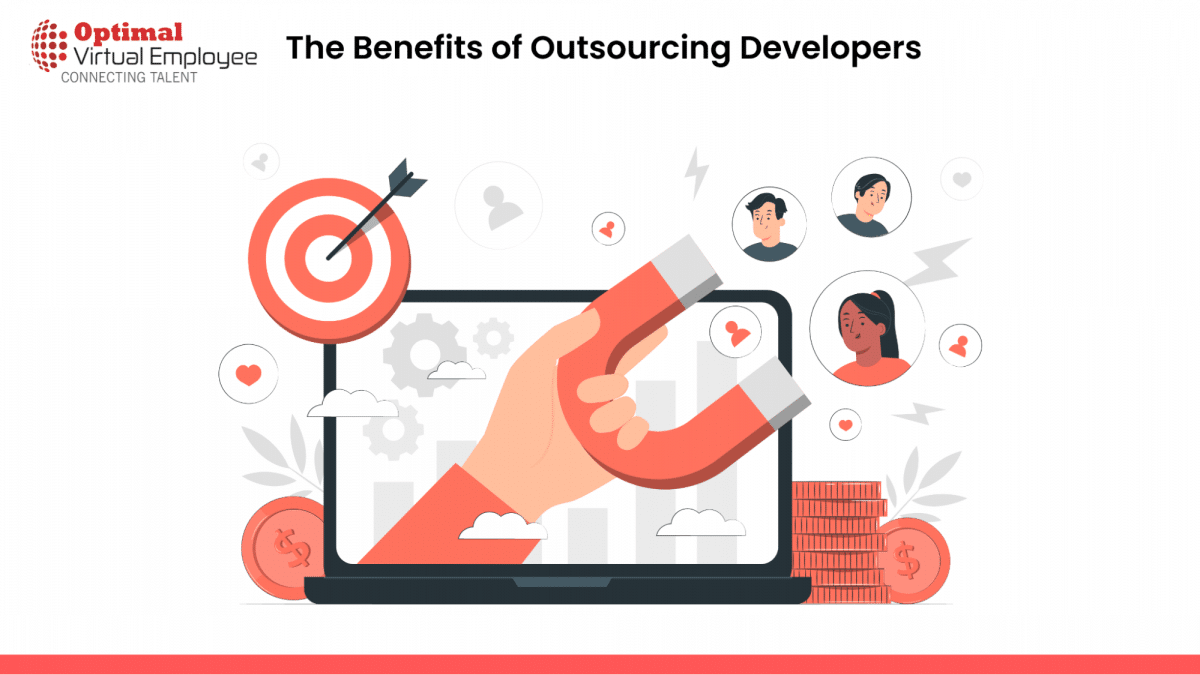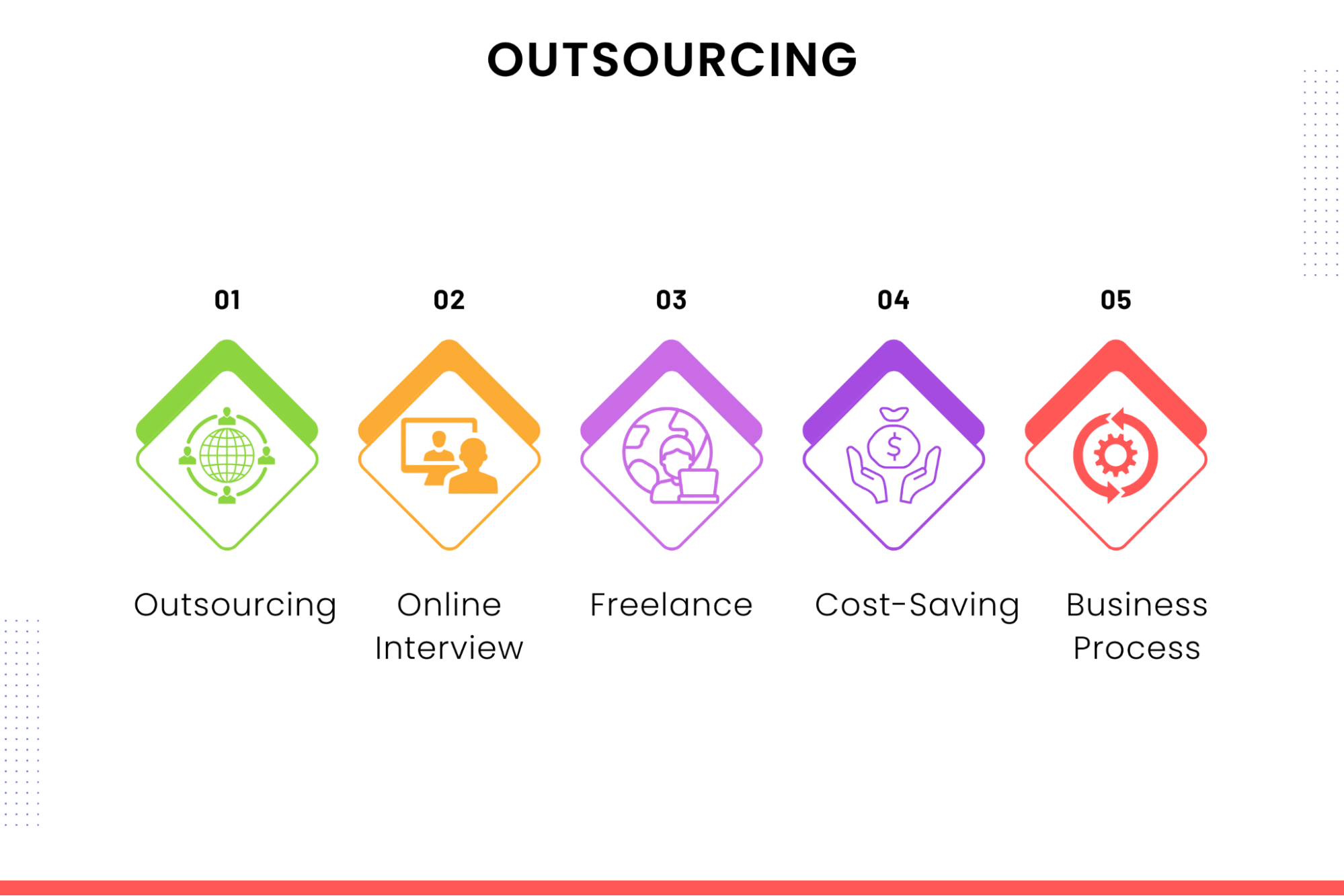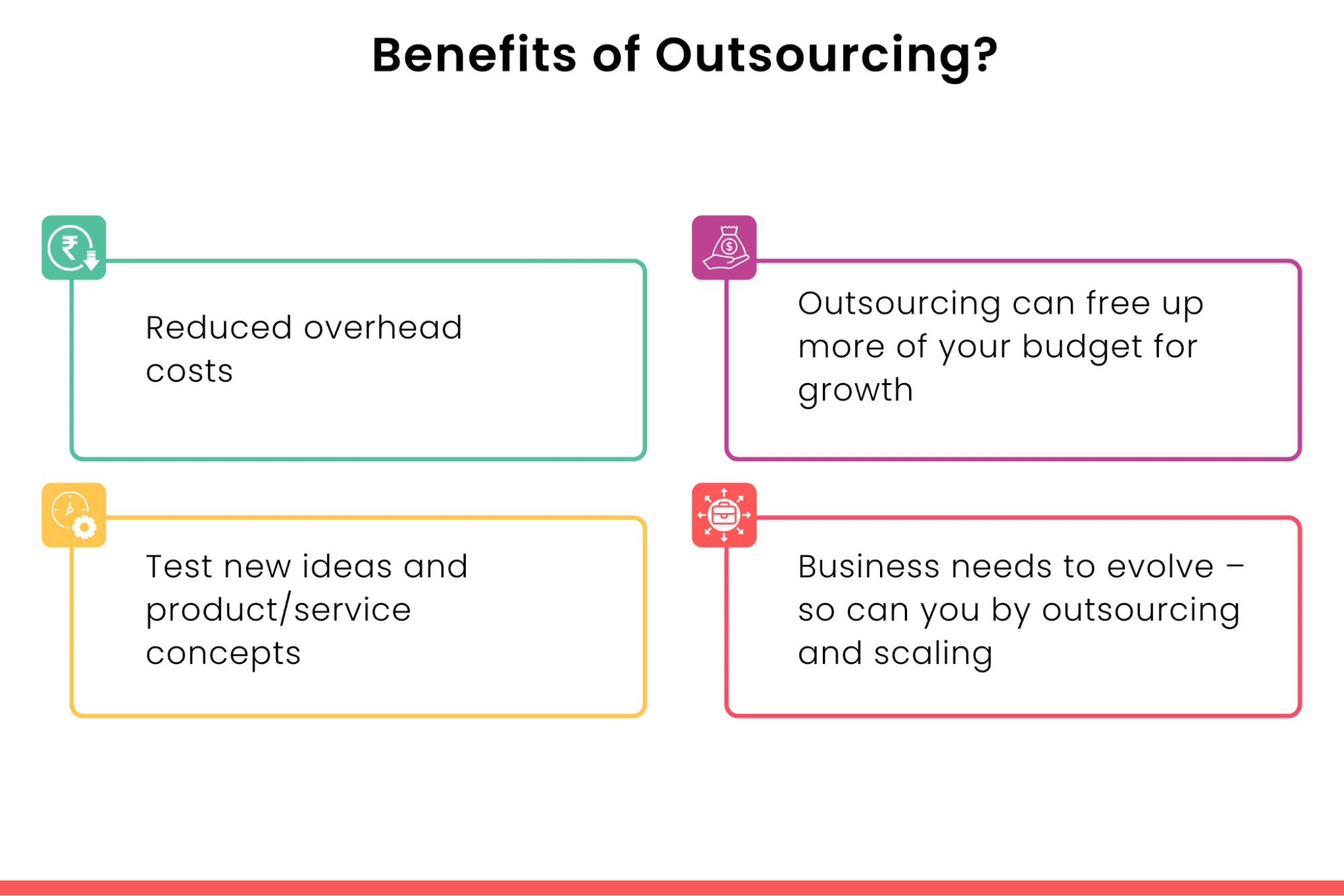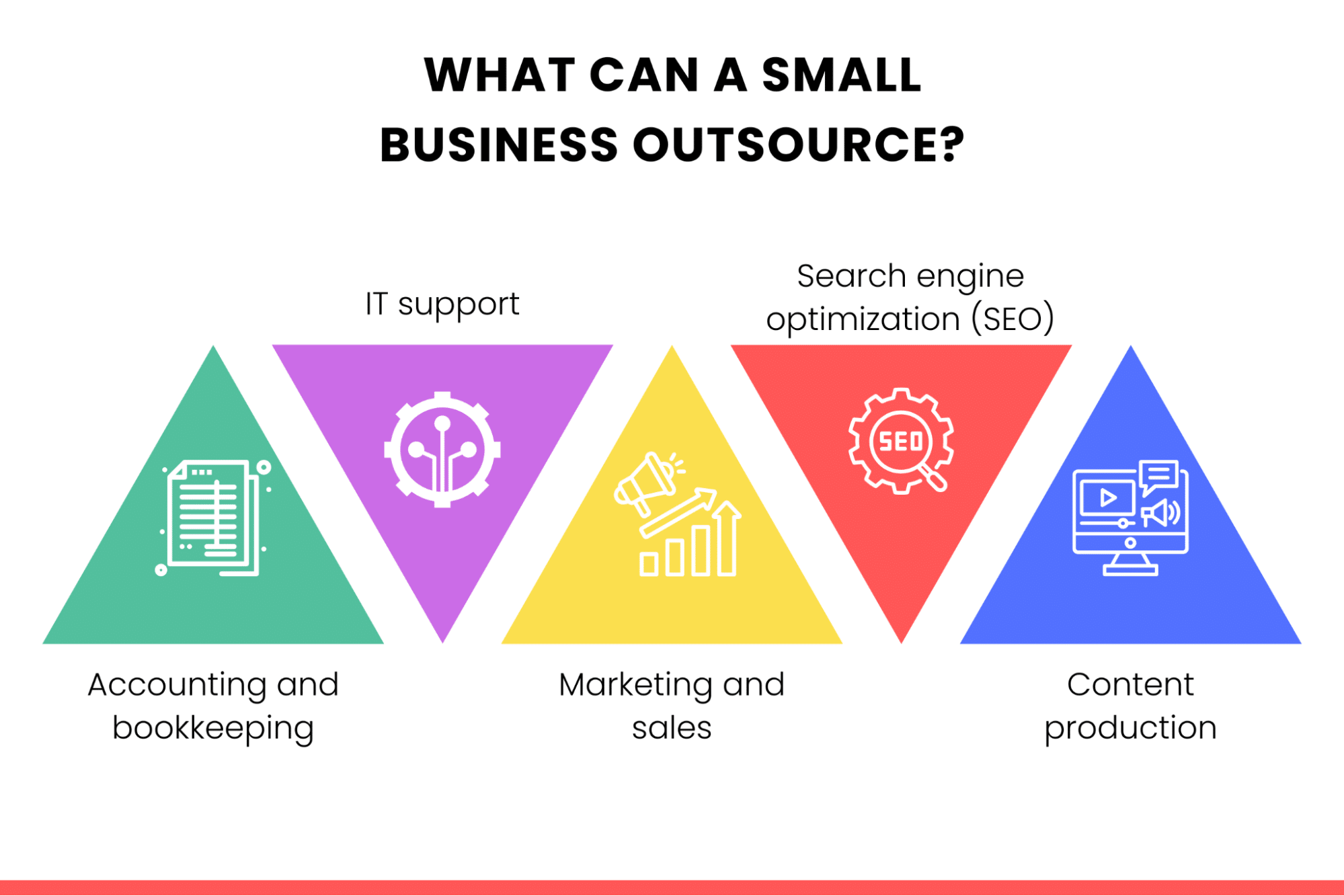Outsourcing in software development has become a standard practice as businesses transition from traditional legacy systems to modern technology solutions. However, this area still presents challenges for project managers. The hurdles aren’t just about locating a technically competent team; it’s also crucial to find a service provider with the necessary experience and a track record of timely delivery.
In 2022, global spending on IT services is projected to exceed one trillion U.S. dollars, marking a 7.9% growth compared to the prior year.
Outsourcing software initiatives is a prevalent practice across various industries, particularly for companies aiming to automate their business processes and improve service delivery. This trend isn’t limited to large corporations; even startups and traditional IT firms frequently turn to outsourcing to manage their workloads or meet tight deadlines.
In this article, we’ll cover the key aspects of IT outsourcing, providing insights that will address your questions and alleviate any concerns you may have.
What Is Software Development Outsourcing?
Outsourcing in software development refers to collaborating with external development firms or managed service providers to execute an entire project or a segment of it. This approach is particularly beneficial for companies that do not have the internal resources or expertise for software development.
Additional motivations for partnering with an IT service provider may include a restricted budget or timeline for development, a lack of specific tools and licenses needed for software execution, or a shortage of experience in risk and project management.
What Are Outsourcing Strategies?
An outsourcing strategy plan serves as a blueprint for how a business collaborates with third-party organizations and freelancers to complete tasks. Unlike traditional business models that rely solely on internal employees, outsourcing IT services can significantly cut costs, boost productivity, and elevate the overall quality of work. In fact, approximately 70% of companies consider outsourcing to be a cost-effective solution. This is why engaging a software development outsourcing company can be invaluable, helping to rapidly mitigate project risks.
Furthermore, the strategy outlines a set of standards, protocols, and guidelines that assist businesses in evaluating essential variables such as whom to hire and what compensation to offer. Depending on the specific needs, a company might opt to work with an individual freelancer or a larger corporate entity. It’s vital to consider the significance of outsourcing in specialized areas like web development or software development, as it plays a pivotal role and offers essential benefits.
Things That You Need to Know About Strategies of IT Outsourcing
Now that you’re familiar with the basics of an IT outsourcing strategy, it’s important to focus on several key elements that are crucial for its success. An effective IT outsourcing strategy often requires the collaborative efforts of multiple departments, such as legal, HR, and operations.
While the ultimate goal for most businesses is to acquire top-notch technology at the lowest possible cost, pursuing this objective recklessly can lead to failure. To mitigate this risk, there are certain factors to consider. Curious about what they are? Keep reading.
Firstly, it’s crucial to have well-defined objectives that are clearly understood by everyone on your team. Communication is another critical element, especially when working with external service providers. Make sure to convey your company’s requirements, terms, and conditions in a way that is easily understandable for both parties involved.
Interestingly, the global value of the outsourcing industry is projected to reach $405.6 billion by 2027. And while you’re exploring everything you need to know about IT outsourcing strategies, don’t forget to also delve into the intricacies of a successful software product development lifecycle.
What are the Benefits of Outsourcing?
Outsourcing has become a prominent trend, with businesses both large and small looking to cost-effective and often higher-quality options like India for non-core functions.
The data supports this shift:
In 2021, over 53% of companies chose to outsource their customer support teams.
By 2024, the IT outsourcing market is expected to grow by an additional $98 billion.
So, what’s fueling this surge?
Is it time to let go of the “do-it-all-myself” mindset and delegate monotonous back-office tasks? Could outsourcing be the key to gaining a competitive advantage?
Let’s explore why outsourcing is gaining traction across various industries.
Diverse Skill Sets at Your Disposal
Considering team expansion but constrained by resources for full-time staff?
You’re not alone.
Outsourcing eliminates the need for the time and financial investment in recruiting and training, allowing you to bring in the talent you need, when you need it.
Approximately 37% of small to medium-sized businesses turn to outsourcing for at least one of these key business functions:
– Web Design and Development
– Information Technology
– Round-the-Clock Customer Service
– Social Media Marketing
– Human Resources
– Search Engine Optimization
– Email Marketing Campaigns
Reduced overhead costs
Outsourcing offers a compelling advantage when it comes to reducing overhead costs. By leveraging this strategy, businesses can bring on board seasoned professionals specifically for non-core functions, tailoring terms and conditions that align well with their objectives. This becomes especially impactful when the goal is to maintain operational efficiency while minimizing expenses. Instead of investing in full-time in-house talent, which includes costs related to hiring, training, and benefits, companies can utilize specialized skills on an as-needed basis.
Another financial advantage is the significant labor cost differential between Western countries and parts of Asia, such as India. In many cases, the labor costs in countries like India can be up to 60% lower compared to those in the United States. This sizable gap enables companies to allocate their resources more efficiently, and possibly invest the savings into other critical aspects of the business, such as research and development or marketing strategies.
However, it’s crucial to note that lower costs do not necessarily translate to compromised quality. Many businesses have found that the standard of service they receive from outsourcing partners in countries like India is often on par with, or even surpasses, what they might receive domestically. This allows companies not only to save money but also to benefit from high-level expertise and quality work.
Therefore, outsourcing serves as a dual-edged sword, offering not just cost savings but also access to a global talent pool. Businesses are able to marry fiscal prudence with quality outcomes, making it an increasingly popular choice for companies aiming to be more competitive in today’s fast-paced marketplace.
Outsourcing can free up more of your budget for growth
Outsourcing as a strategy for business scaling offers a host of benefits, chief among them being the elimination of the need for expensive infrastructure investments. When you outsource specific tasks or functions, you’re essentially leveraging the existing infrastructure of your outsourcing partner. This could range from technological systems to workspaces and human resources. As a result, the significant costs usually associated with building and maintaining such an infrastructure in-house are avoided, allowing companies to be more agile and responsive to market changes.
By channeling the funds saved through outsourcing into core business operations, companies can free up their budgets for what truly matters. The daily tasks that are essential for running the business—whether it be product development, marketing, or customer relations—can receive greater financial attention. This laser focus enables companies to put more energy into enhancing their brand, creating quality products, or fine-tuning their services, ultimately leading to sustained business growth.
In summary, outsourcing not only alleviates the financial burden of infrastructure but also liberates resources for core business activities. This dual benefit allows companies to more effectively allocate their budgets, boosting both operational efficiency and growth prospects. Through strategic outsourcing, businesses can realize their full potential without being bogged down by costly infrastructure and peripheral tasks.
Test new ideas and product/service concepts
In the fast-paced world of business, speed and originality are often crucial differentiators, especially when launching a new product or service. The ability to quickly bring an innovative solution to market can provide a significant competitive edge. Delayed launches, on the other hand, can lead to missed opportunities and allow competitors to gain market share. Outsourcing to experts can accelerate this process, allowing businesses to go from concept to market more swiftly and efficiently, seizing opportunities before competitors do.
The benefits of outsourcing are not just about speed; they’re also about quality and expertise. Experienced professionals bring a wealth of knowledge to the table, capable of delivering results that are not just fast but also of high quality and uniqueness. Their deep-rooted skills and insights often lead to creative solutions that may not have been possible with an in-house team that has other responsibilities to juggle. Additionally, experts are generally less prone to making costly errors, thanks to their familiarity with best practices in their respective fields.
This blend of speed and expertise facilitates a more efficient testing phase for new products or services. Experienced professionals can quickly identify any flaws or areas for improvement, thereby reducing the time required to iterate and finalize a market-ready offering. The shorter the testing phase, the faster a company can go from idea to implementation, giving it a better chance to secure a strong market position early on.
In short, outsourcing offers a powerful combination of speed, expertise, and quality that enhances a company’s value proposition. By tapping into specialized talent, businesses can not only accelerate the process of bringing new products or services to market but also improve the overall quality of those offerings. This creates a more compelling value-added proposition, helping companies gain and sustain a competitive edge in their niche markets.
Business needs to evolve – so can you by outsourcing and scaling
You’ve likely come across the adage “timing is everything,” a saying that holds just as much weight in the realm of business as it does in sports scenarios like executing the perfect Super Bowl touchdown pass. In the business landscape, timing can be the difference between seizing a golden opportunity and missing out entirely. Whether it’s entering a new market, launching a product, or simply reacting to consumer trends, timing plays a crucial role in determining success or failure. Missing the opportune moment often leads to lost revenue, dwindling market share, or even reputational damage.
Outsourcing becomes a vital tool in this context, serving as a flexible strategy that allows businesses to adapt and evolve as needed. One of the most significant benefits of outsourcing is its ability to bypass the time-consuming and often costly process of hiring full-time employees. Recruiting, onboarding, and training new staff not only take time but also add to a company’s overhead costs. Outsourcing eliminates these issues by providing immediate access to specialized talent, allowing companies to quickly scale up or down according to their specific needs. This agility ensures that businesses can act promptly, capitalizing on opportunities as they arise without being bogged down by the logistical hurdles of traditional hiring.
In short, the flexibility offered by outsourcing acts as a catalyst for better timing in business decisions. By negating the need for prolonged recruitment processes and reducing overhead costs, outsourcing empowers companies to be more responsive. The ability to quickly scale operations to meet specific needs means that businesses can act when the timing is right, thereby maximizing opportunities and boosting competitiveness.
What Can a Small Business Outsource?
Entrepreneurs running small or micro-businesses, as well as freelancers and those with side hustles aiming to initiate, manage, and expand their ventures, can consider outsourcing the following responsibilities.
Accounting and bookkeeping
While many business owners may not be proficient in bookkeeping, research indicates that 60% still handle this critical task in-house, which can be detrimental to the business. Studies reveal that small and medium-sized businesses (SMBs) devote an average of 24 days per year to managing their sales tax compliances, at a staggering average cost of $22,000.
Furthermore, the IRS estimates that 40% of these businesses end up paying around $845 in penalties for late or incorrect filings. These mistakes can be costly, both in terms of time and financial resources, potentially impacting a business’s overall health.
Outsourcing these accounting and bookkeeping responsibilities to a payroll expert can lead to considerable benefits. Not only can it enhance compliance with tax regulations, but it can also yield significant cost savings. In fact, businesses that choose to outsource these tasks can decrease their associated costs by up to 18% when compared to those that manage them internally.
IT support
If you find that information technology (IT) isn’t exactly your forte, don’t worry—you’re not alone, and it’s not a prerequisite for running a successful enterprise. The key to success often lies in playing to your strengths and allocating your efforts where they’ll yield the most significant impact.
Diving deep into the complexities of a new CRM system, for instance, may not be the best use of your time or skills. In such cases, it’s generally wiser to delegate these specialized tasks to an IT expert. They can bring a host of benefits to your operations, from enhancing network efficiency and boosting overall productivity to reducing the risks associated with cyber-attacks and potential financial losses. They’ll also ensure that your technology stays current, adding another layer of efficiency to your business.
From my own experience, I can vouch for the value of outsourcing IT tasks. Doing so eliminates many of the distractions that can divert us from reaching our essential goals and achievements. Not to mention, it also significantly reduces stress levels, allowing us to focus on what we do best in our business.
Marketing and sales
While sales and marketing are critical components for any small business, maintaining a full-time, in-house team for these functions isn’t always financially feasible for many entrepreneurs. That said, there is a practical and cost-effective alternative: outsourcing your marketing and sales efforts.
The advantages of choosing to outsource are manifold. First and foremost, you’ll gain the expertise of marketing professionals who specialize in your industry. These experts can offer innovative perspectives on existing marketing strategies that may have grown stale. Second, outsourcing provides you with the flexibility to quickly ramp up or scale down your marketing campaigns as needs change. In addition, you’ll benefit from the latest optimization techniques and technologies, enabling you to stay ahead of the curve. Lastly, this approach also allows for easier tracking of your return on investment (ROI), making it simpler to gauge the effectiveness of your marketing initiatives.
Opting for marketing outsourcing can translate to substantial cost savings. The model allows you to pay only for the services you actually require, making it a more affordable option than hiring a full-time in-house marketing professional. This ensures you get tailored expertise and resources without the financial strain of permanent staff.
Search engine optimization (SEO)
Many business owners recognize the potential benefits of an effective SEO strategy, such as improved online visibility and increased sales. However, not everyone has the expertise to execute such a strategy successfully. When done correctly, SEO can offer tremendous ongoing value to your business. Keep in mind that quality SEO services aren’t inexpensive, with costs averaging between $1,000 and $2,000 per month. Therefore, it’s crucial to research thoroughly to find an SEO solution that fits your needs and budget.
There are essentially three outsourcing options available for your SEO needs. The first option is to hire an independent SEO contractor through platforms like Upwork. This can provide more personalized service but may lack the comprehensive resources of a larger organization.
The second option is to engage an SEO-focused company that specializes exclusively in these services. The final choice is to collaborate with a digital marketing agency that offers a range of services, including but not limited to SEO. Each option has its own set of pros and cons, so it’s important to evaluate what will best suit your specific requirements and goals.
Content production
Creating content that is both accurate and relevant is no small feat; it requires substantial time, market research, and a keen understanding of your target audience and SEO best practices. The term ‘content production’ encompasses a wide array of elements, from writing articles and creating videos to generating images, graphs, and infographics, as well as managing social media platforms.
Outsourcing your content creation tasks offers the opportunity to tap into a pool of specialized professionals. These experts can help you craft content that not only resonates with your target audience but also accelerates your brand’s growth trajectory. Leveraging external talent can provide you with a competitive edge, ensuring that your content is both engaging and aligned with your brand’s objectives.
The practice of outsourcing content production has gained significant traction, validated by various industry reports. According to a study by the Content Marketing Institute, 84% of B2B marketers delegate their content creation to external parties. Another report indicated that 55% of B2C business owners also outsource their content marketing requirements. These statistics underline the efficacy and popularity of outsourcing content needs, making it a strategic choice for many businesses.
Conclusion
As a premier company specializing in software development outsourcing, our expert team can assist you in devising effective outsourcing strategies. Our extensive technical know-how provides you with a competitive advantage, along with access to a rich pool of resources that ensures a quicker time-to-market for your products.
Our seasoned professionals take the time to understand your specific business requirements, tailoring solutions to expedite your software development process. We recognize that navigating cultural differences can be a challenge when outsourcing, especially to offshore locations.
For this reason, our team places great emphasis on mastering cultural nuances to guarantee the success of your offshore outsourcing endeavors. We go the extra mile to ensure that these challenges are addressed, thereby facilitating smooth and effective collaboration.
As a premier company specializing in software development outsourcing, our expert team can assist you in devising effective outsourcing strategies. Our extensive technical know-how provides you with a competitive advantage, along with access to a rich pool of resources that ensures a quicker time-to-market for your products.
Our seasoned professionals take the time to understand your specific business requirements, tailoring solutions to expedite your software development process. We recognize that navigating cultural differences can be a challenge when outsourcing, especially to offshore locations.
For this reason, our team places great emphasis on mastering cultural nuances to guarantee the success of your offshore outsourcing endeavors. We go the extra mile to ensure that these challenges are addressed, thereby facilitating smooth and effective collaboration.












